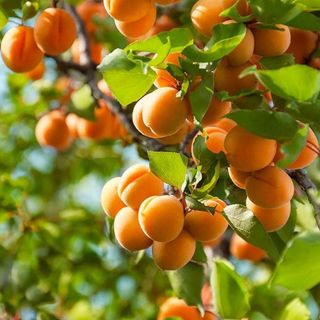5 Fruits That Are Easy to Grow in June — These Are the Best Choices to Grow Your Own
Live your homestead dream this June and plant up a yard of fresh fruits for you to enjoy all summer long
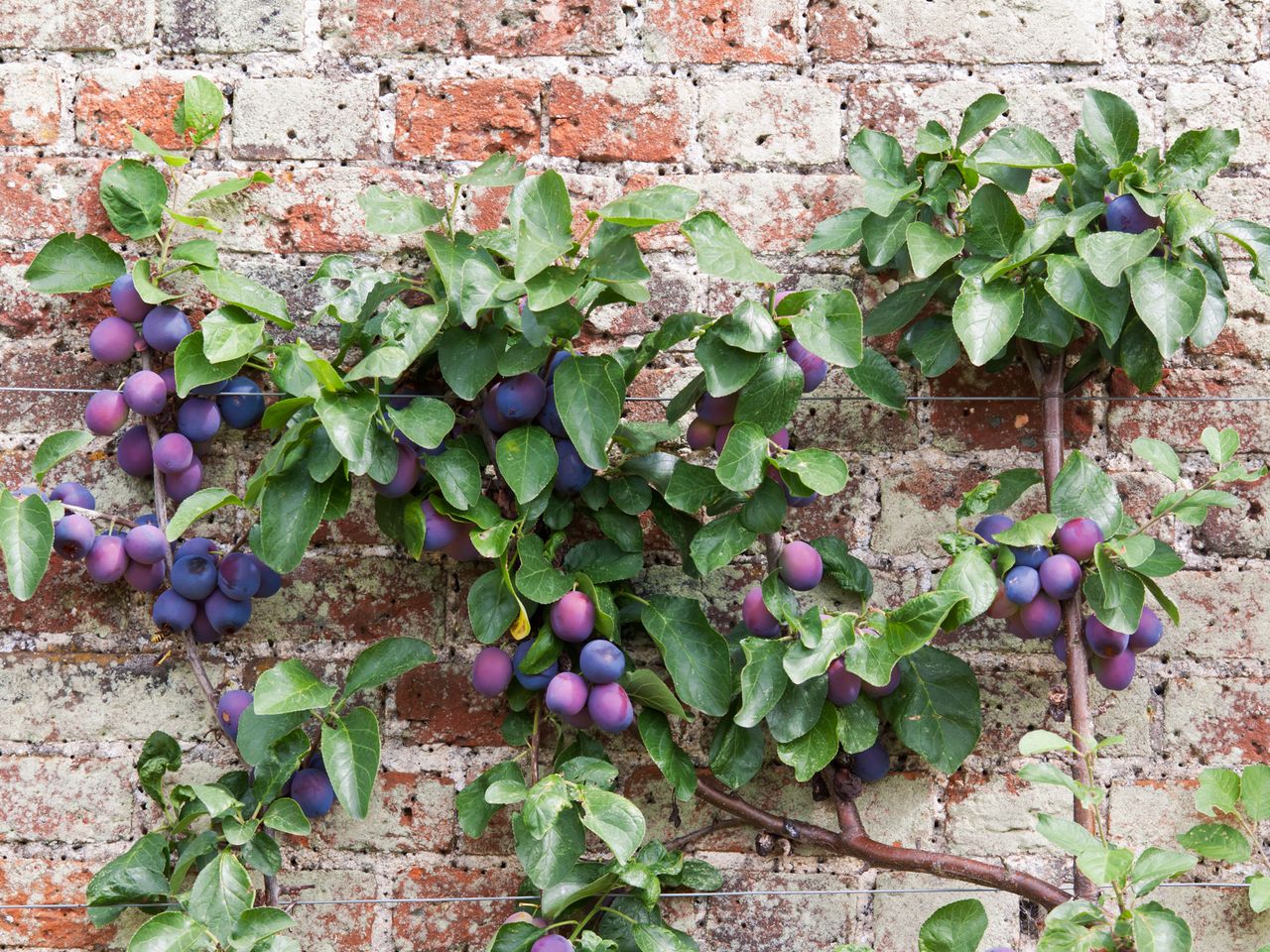
If your Friday nights consist of vegetable patch planting reels, a mug of herbal tea, and a 9pm bedtime, keep reading!
We’re all about slow living. Growing your own produce, enjoying nature, less screentime – it’s a match made in heaven. But one of the most rewarding parts of this wholesome homesteading movement has to be growing your own fruit.
In The States, you’re blessed with some great growing environments that summer fruits love. I mean it doesn’t get better than a Floridian orange or a Georgian peach, right? Though it might sound a bit out of your league, growing your own fruit is actually a breeze.
To get you started, we’ve spoken to the fruit-farming expert to see your best options for growing fruit trees and bushes this June. We can smell that homemade blueberry pie already!

Mary Jane Duford is a certified Master Gardener and the founder of Home for the Harvest, a gardening blog visited by over 3 million North American readers in 2023. She's also a professional engineer and certified permaculture garden designer.
1. Watermelons
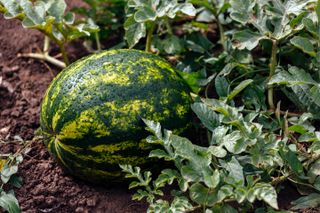
I don’t know about you, but we’re obsessed with videos of watermelons at the moment. You know, the ones where they grab a melon straight off the vine, crack it open, and reveal its iconic fuchsia flesh? It’s fair to say watermelon is a family favorite fruit on a warm day, and turns out June is the perfect time to plant them.
According to Master Gardener and home-growing expert Mary Jane Duford, ‘June is the most common month for planting watermelon plants in regions with icy cold winters. These plants love the heat, and most gardeners wait until nighttime temperatures rise above about 50ºF (10ºC) before planting them outdoors. In warmer climates with warm autumn nights, larger watermelon varieties can be planted in June, as they will have time to mature in the fall.’
But if you’re in a part of the country which sees temperatures dropping in September, don’t worry you can still get a slice of the action, but be sure to pick a suitable variety. Mary Jane advises ‘Gardeners in colder climates where nighttime temperatures start to drop in September should consider growing mini watermelon cultivars like ‘Sugar Baby,’ ‘Mini Love,’ or ‘Tiger Baby.’
When it comes to positioning, watermelons love sunshine, so planting them in a spot that will see a lot of sunlight is your best bet. If you don’t have space in your sunniest beds you can always plant them in a vegetable container garden too, just make sure they’re kept well watered!
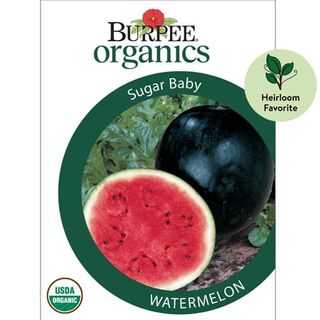
Price: $2.46
Quantity: 1 seed pack
This mini watermelon cultivar is perfect for climates with colder Septembers, according to experts.
2. Grapes
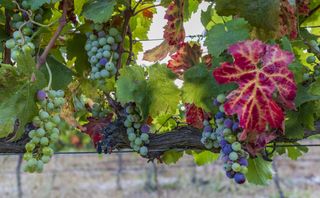
The US has some of the greatest wine regions in the world, so it’s only right we honor that with a vine of our own. Whether you’re into homemade wine, or you just love to lay on a lounger eating homegrown grapes Cleopatra-style, there is a huge variety of grape vines out there that are just waiting to be planted this June.
Expert Mary Jane says ‘Grapes are hardy plants that can live for decades when well cared for. While June can be quite hot in many regions, it is also the time of year when many cultivars are available at most garden centers (both online and in-person). If planting grapes in June, be sure to water them frequently for the first three months after planting, as the roots have not yet had a chance to become established in the new location.’
But what grape varieties do the pros recommend? Mary Jane says ‘If growing grapes to eat fresh rather than to juice, choose a table grape variety. Many modern varieties are seedless. Some popular cultivars are “Interlaken”, “Einset”, “Red Flame”, “Sovereign Coronation”, and “Himrod”.’
But we aren’t the only ones who love a grape — they're also favorites of wasps. A handy hack to stop the wasps from accessing the grapes is to use small string-tie organza gift bags. Simply place each bunch of grapes inside the bag while on the vine and tie it to the stem. This will ensure the plant still has access to sunlight but the wasps can’t ruin your fruits!

Price: $44.99
Quantity: 1 live vine
Red flame seedless grapes are one of the sweetest, and most popular, types of grapes to grow for eating in the US.
3. Strawberries

Nothing says summer like a bowl of strawberries. And it turns out it’s one of the easiest fruits to grow in June. Plus it’s one the whole family can get involved with growing – is that wholesome or what?
Mary Jane says ‘Strawberries are a fantastic crop to plant in June. While the starter plants are usually more expensive than the bare-root bundles sold earlier in the year, the starter plants are easier for beginner gardeners to plant. Sometimes, there are even budding berries on the plants you purchase! While you won’t get a proper crop until next spring, those first few berries can give you a bit of instant gratification and momentum to keep on gardening.’
If you’re looking for a strawberry plant that is guaranteed to be delicious, look out for June-bearing varieties! Expert Mary Jane says ‘“Honeoye” or “Kent” are usually the first choice. You get a large, flavorful crop for about a three-week period each June. If you only have a small yard or strawberry pot, a day-neutral cultivar like “Tristar” or “Albion” can be a better choice, as you’ll enjoy a slow stream of berries throughout the summer.’
A tip for keeping your strawberries healthy and pest-free is to keep the fruits off the ground. This will prevent them from sitting on damp ground and rotting. Scattering straw underneath the fruits is the traditional method, or resting the fruits on small plastic pots works great too!

Price: $15.48
Quantity: 2 pack
Get a jump start on strawberry growing by choosing a starter plant at this time of year, over a bare root.
4. Kiwis

Though they might seem like something you can only grow in a tropical garden, kiwis can actually be grown in the US with ease, and June is a great time to plant them!
Master Gardener Mary Jane says ‘Kiwis grow on vigorous vines and can be a reliable crop for home gardeners. Traditional fuzzy kiwis (Actinidia deliciosa) grow best in Zones 7 and up, while the smaller types can survive colder winters. Hardy kiwis (Actinidia arguta) are a nice choice in Zones 5-6, while gardeners in chilly Zones 3-4 may have more reliable crops by growing Arctic kiwis (Actinidia kolomikta).’
As with many types of fruit, some kiwis will need a pollinator plant in order to remain fertile. But if you’re limited on space, look for self-fertile varieties. Mary Jane explains ‘Actinidia deliciosa “Jenny” is a popular warm-climate choice because it is self-fertile and does not require a partner plant for pollination.’
‘If you have space for a male partner plant for pollination, both the popular ‘Hayward’ and the top-tasting "Vincent" are great choices,’ says Mary Jane. ‘Within Actinidia arguta, "Anna", "Michigan State", and "Geneva" are top-tasting cultivars (which require a male partner plant nearby), while "Issai" is the right choice if you can only fit one plant.’
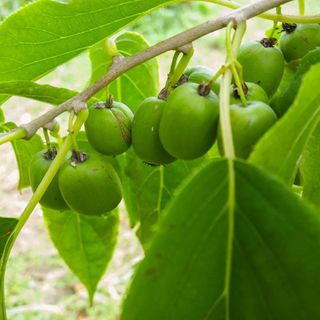
Price: $99.95
Quantity: Two pack (buy one get one free)
This variety of kiwi has an incredibly high tolerance for cold weather. You'll need a male plant too, but Fast Growing Trees have bundled them together for you.
5. Apricots

The States is famous for sensational stone fruits. In fact, did you know California produces more than 80% of the nation’s stone fruits? We’re talking juicy peaches, plums, nectarines, and apricots.
And, according to expert Mary Jane, apricots are one of her top picks for fruits to plant in June. She says ‘Apricots are an excellent fruit to plant if you live in their ideal growing climate. Apricot trees can be grown in USDA hardiness zones 5-9 and truly thrive in dry climates. The trees need cold winters and consistently warm spring temperatures (with hopefully no late frosts).’
‘Apricot trees are also lovely in the landscape, featuring pretty spring blossoms followed by backyard shade in the heat of summer. While many types of tree fruit require pollination partner plants, many apricot cultivars are self-pollinating, so you’ll only need one apricot tree to get fruit.’
Don’t worry if you’re in a cooler USDA zone though. Mary Jane advises ‘In colder climates, choose hardy cultivars such as "Hargrand" or "Alfred". In areas with more mild winters, English varieties like "Moorpark" or "Tilton" may be better suited.’
Be The First To Know
The Livingetc newsletter is your shortcut to the now and the next in home design. Subscribe today to receive a stunning free 200-page book of the best homes from around the world.
Matilda Bourne is a freelance homes, gardens and food writer, stylist and photographer. Known for creating and capturing content for multiple international brands, her work has been featured in The Telegraph, The Daily Mail, and Hello! magazine. When she’s not writing, you can usually find her tending to her much-loved garden and scouring thrift stores for vintage furniture.
-
 The Edgy 'Grunge' Aesthetic Is Making a Comeback, and Here's How to Channel It Through Your Interiors
The Edgy 'Grunge' Aesthetic Is Making a Comeback, and Here's How to Channel It Through Your InteriorsMaybe it doesn't need to be just a phase... While subversive at its core, the grunge movement can manifest itself as practical, stylish, and refined
By Devin Toolen Published
-
 6 Bed Linen Care Mistakes to Avoid If You Want Your Sheets to Look Good for Longer
6 Bed Linen Care Mistakes to Avoid If You Want Your Sheets to Look Good for LongerWashing, drying, and storing your bed linen properly is the key to longer-lasting sheets that stay smooth and soft
By Lilith Hudson Published
